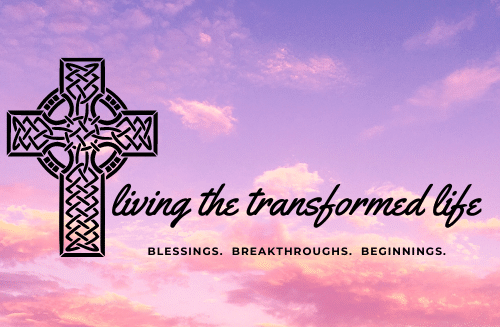
Stop The World, I Wanna Get Off!
Have you ever felt like that? I know I have. For much of my life I was a workaholic, following my dad’s example. I was working six days a week (in a Christian ministry, no less). My one day “off” was Sunday– but I spent most Sundays teaching Sunday School in the morning, and trying to catch up in the afternoon on everything I hadn’t gotten done during the week. A day of rest? Yeah, right. It took me many years to discover the joys of actually celebrating the Sabbath.
Perhaps this sounds like you. We live in a world where our work never seems to end. We think, “If only I had a vacation! That would solve everything…” So we go on vacation– and cram it full of so much activity that we need a vacation to recover from the vacation. Sound familiar? Vacations don’t solve our fatigue because we’re still missing a crucial concept. We need to discover the Sabbath.
I was reminded of this recently when I attended an excellent online webinar by Rich Villodas called Sabbath For Leaders: How to Rest in a Nonstop Ministry World. Villodas is pastor of New Life Church in New York City and the author of two books, Good and Beautiful and Kind and The Deeply Formed Life (I’ve put both of these on my “To Read” list).
According to Pastor Villodas, “We need a sacred rhythm between work and sabbath. God intended us to live by a weekly rhythm to help us live sustainable lives.”
Sounds good. But…what exactly is the Sabbath?
 What Does the Sabbath Mean to You?
What Does the Sabbath Mean to You?
The word sabbath can bring up all kinds of thoughts and feelings. For some people, sabbath is “everything you can’t do.” For others, sabbath is an Old Testament practice that has nothing to do with modern life. Both of these extremes are wrong.
Sabbath can be defined as “a 24-hour period resulting in deep rest and renewal.” Villodas expands that definition, saying, “Sabbath is a spiritual formation practice, part of the process of becoming like Jesus.” Perhaps that is the biggest selling point to consider. Jesus practiced the Sabbath, and as His followers we should, too.
We see the Sabbath first mentioned in Genesis 2:2-3. “By the seventh day God had finished the work he had been doing; so on the seventh day he rested from all his work. Then God blessed the seventh day and made it holy, because on it he rested from all the work of creating that he had done.”
The next reference to the Sabbath is in Exodus, where God gives the Ten Commandments to Moses: “Remember the Sabbath day by keeping it holy. Six days you shall labor and do all your work, but the seventh day is a sabbath to the Lord your God. On it you shall not do any work, neither you, nor your son or daughter, nor your male or female servant, nor your animals, nor any foreigner residing in your towns. For in six days the Lord made the heavens and the earth, the sea, and all that is in them, but he rested on the seventh day. Therefore the Lord blessed the Sabbath day and made it holy” (Exodus 20:8-11).
It’s important to note that this commandment was not advocating for an anxiety-inducing list of do-not’s. The purpose of the Sabbath was to imitate God. After God created everything, on the seventh day he rested. We’re to practice Sabbath because that’s what God did. God made the Sabbath day holy, and the word holy means “set apart or dedicated to the Lord.” Mankind loaded down the Sabbath with legalistic requirements, but that was not God’s intent.
In Deuteronomy the Ten Commandments are repeated to a new generation, those who were about to enter the Promised Land. Deuteronomy means “the second giving of the Law,” but this time it’s given in a season of liberation. The Israelites were no longer enslaved in Egypt; to rest is what free people do. God gave us the Sabbath as a day to be different, a day marked by rest and worship and joy!
 The Sabbath in Four Words
The Sabbath in Four Words
It’s important for Christians to understand the key concepts behind the Sabbath. Basically this can be broken down into four simple words:
- STOP — On the Sabbath we stop all our work. We step away from our normal tasks. For many of us, this is half the battle! The Sabbath is not a day to catch up on unfinished work. At its core, the Sabbath is a time to stop and acknowledge God, a time to worship.
- REST — This is the notion of self-care, a phrase that has been gathering popularity lately. Sabbath is a time of recognizing our limitations and our need to rest physically, mentally, emotionally. The old adage is true: if you don’t take a break, eventually you will break.
- DELIGHT — Children don’t need to be taught how to delight and find joy, but sometimes as adults we can become so busy we end up delight-deficient. The Sabbath is a time to step back and do the things that bring you joy.
- CONTEMPLATE — The Sabbath is a day of worship, a day to pray, a day to read and reflect upon God’s Word, a day to join together with other believers in church. It’s a day to recognize that all of life is a gift of God. It’s a day to cherish your life with Him!
Five Truths About The Sabbath
- The Sabbath is not a reward for hard work. Adam and Eve were created on the sixth day– so their first full day was a day of rest. They did not work their way into rest. It was a gift of God, not a result of works
- The Sabbath is a reminder that our work will remain incomplete. There is coming a day when we will not be able to finish what we’ve started. The Sabbath is a reminder of our mortality in this world, and a chance to reflect on eternity.
- The Sabbath is the day that moves us from production to His presence. It’s a day to enjoy the presence of God, and loved ones. It’s a day to acknowledge that there are more important things than accomplishments and the acquisition of material possessions. While it is true that if you rest you may become more productive, that’s not the goal. Sabbath is a time of grace where we’re not achieving anything, but are just delighting in His love and acceptance.
- The Sabbath reminds us that we are not God. God is the one who holds everything together– not us.
- The Sabbath reminds us of the deeper rest we need that is found only in Jesus Christ. The true rest we need is not for our bodies, but for our souls.
 Celebrate the Sabbath!
Celebrate the Sabbath!
I hope by now you have caught on to the importance and purpose of the Sabbath. It’s not just another day. God meant for it to be something special, something to look forward to all week.
So how will you celebrate the Sabbath? Here are a few suggestions.
First, you need to determine traditions to incorporate that will make the day special. Going to church should definitely be one. Another might be special times with families and friends. Spend some time reading your Bible, and Christian literature. Pursue a hobby that you enjoy. Remember the fun factor.
Second, remove anything that would bring stress or exhaustion. Remember, this is a day to enjoy! Let the work wait.
Third, remember that Jesus practiced the Sabbath. And it was Jesus who said, “The Sabbath was made for man, not man for the Sabbath” (Mark 2:27). By this He meant that the Sabbath is to be a blessing, not a burden.
Fourth, it may be necessary to have your Sabbath on a different day than Sunday. After all, some people (such as pastors, first responders, etc.) have to work on Sundays. If that’s the case, consider celebrating your Sabbath on a different day of the week. Jesus’ remark in Mark 2:27 implies that such flexibility, if necessary, would be perfectly acceptable. The Sabath was never intended to be legalistic.
I can personally attest to the benefits of celebrating the Sabbath. It freed me from workaholism and burnout, and has given me a life full of joy and freedom. Sundays are the highlight of my week!
So what does the Sabbath mean to you now? Start celebrating!
Was this article helpful to you? Share it on social media, leave a comment, become a subscriber!
Related Posts:
“Getting Into God’s Word” https://www.livingthetransformedlife.com/getting-into-gods-word
“Hiding From God, And Other Lessons https://www.livingthetransformedlife.com/hiding-from-god-and-other-lessons

 What Does the Sabbath Mean to You?
What Does the Sabbath Mean to You? The Sabbath in Four Words
The Sabbath in Four Words Celebrate the Sabbath!
Celebrate the Sabbath!